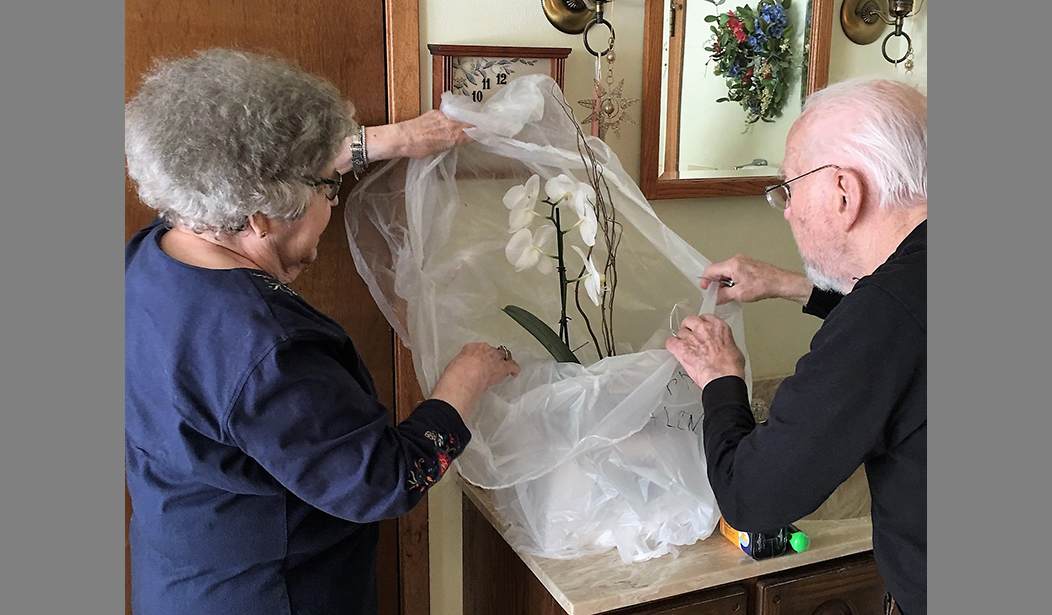When I was a kid, every summer seemed to last forever. The days went past at a snail's pace; I would often go up into the woods after breakfast and not return to the house until after dark, and it seemed like I'd been outside for a month. The summers crawled past, full of life, an eternity of a kid being free.
Nowadays? As I sit here in my mid-sixties, I'm looking outside at the leaves on the birches behind the office turning yellow and wondering how fall could be here already, when it seems the snow only melted yesterday; granted an Alaskan summer is short, but not that short! That's something that happens as we age. I noticed it in my forties, and as usual, when I had a philosophical question that vexed me, I went and talked to my Dad about it. The Old Man's advice was, as usual, short, accurate, and to the point: "Wait until you're in your seventies."
I'm not quite there yet, but I'm seeing what he meant. On Sunday morning, during my habitual news crawl through the dark corridors of the internet, I stumbled across a piece from Psychology Today in which psychologist Betsy Holmberg explores this phenomenon.
Frankly, I think she is overthinking it.
It's weird. Time feels faster the older we get. I can think back to an event three years ago, and it feels like yesterday. I still wear the same clothes. My haircut is the same. I live in the same place and eat the same food. Nothing much distinguishes that event from my present. Yet, for a child or teenager, three years can feel like a lifetime. Why does this happen?
Don't get me wrong. All this is accurate enough. Especially the same clothes, haircut and so on. These days I hardly wear a scrap of clothing that doesn't come from Duluth Trading or Carhartt, not counting specialized duds for hunting or fishing. And Dr. Holmberg makes some interesting points about how our perception of time changes, even if I don't completely agree.
Our lives are more routine.
Children and teenagers experience significantly more change, more frequently, than adults. They grow taller, wear new clothes, switch schools, have different friends, and learn new things in class.
I'm not so sure about this one. Yes, when we're younger, things change more often and more quickly, but in our older years, we still deal with change; life is water, not stone. One of the most jarring things to ever happen to me, the most profound life-changing event so far, was losing my Mom and Dad, and I was in my late fifties when that happened. I'm still adjusting, seven years later.
When I am facing a big decision, my first instinct is still to call the Old Man to see what he thinks. I doubt I will ever get used to that empty place in my life where a giant once strode. But we pick up and move on, and I think that's a major difference with aging; we gain perspective and, we can hope, we gain strength. We are tempered by adversity. So, yes, this can make a difference.
With different brains, we experience time differently.
During adolescence, which researchers identify as between 10 and 25 years of age, the brain undergoes significant change. Laurence Steinberg, a heavy hitter in the adolescent research world, calls it a brain of "opportunity" because it is wide open to learning.
I don't see how that affects our perception of time. I grant you, I'm not a psychologist. I do know that, yes, our brains continually change, especially between the ages mentioned here; a 25-year-old sees things much differently than he or she did ten years earlier. That's why we have limits on what minors are allowed to do.
See Related:
Salon Accuses Those Concerned About Biden’s Age of ‘Ageism’ and ‘Ableism’
Study: Married Men Live Healthier, Happier, Longer Lives. Women, on the Other Hand ...
No, I think the entire question may be answered much more simply.
When I was 12, that one long, long summer was only the 12th summer I had ever seen. As a season, a quarter of a year, it made up 1/48th of my entire life. Now? I'm seeing my 62nd summer just drawing to a close. That's 1/248th of my life. I've seen a lot of summers, a lot of falls, a lot of winters, a lot of springs. It's a matter of scale.
Even so: Just because the months and years slip by faster - or, at least, they seem to - that doesn't mean that we enjoy them any less. My wife and I have been empty-nesters for ten years or so now, and it's brought us closer, now that it's just the two of us again. Weeks go by when we don't see another person besides each other, and we're happy with that. The days and weeks go on by, and we keep ourselves busy - another thing that makes the days go by fast - but this 1/248th piece of my life, the summer that just passed, I enjoyed just as much as the 1/48th of my life that was my 12th summer.
And if we feel the summer going by too fast? That's when we knock off early, grab a drink, go out on the deck, and sit in the sunshine for an hour - or two. In those moments, you can feel the wheel of time slowing, back to what it was like when we were kids, and that hour slows down and goes by gradually - just us, the wind, the sun, and the birds.
Yeah, time seems to pass faster as we age. But there are compensations. As Robert Browning said:
Grow old along with me!
The best is yet to be.














